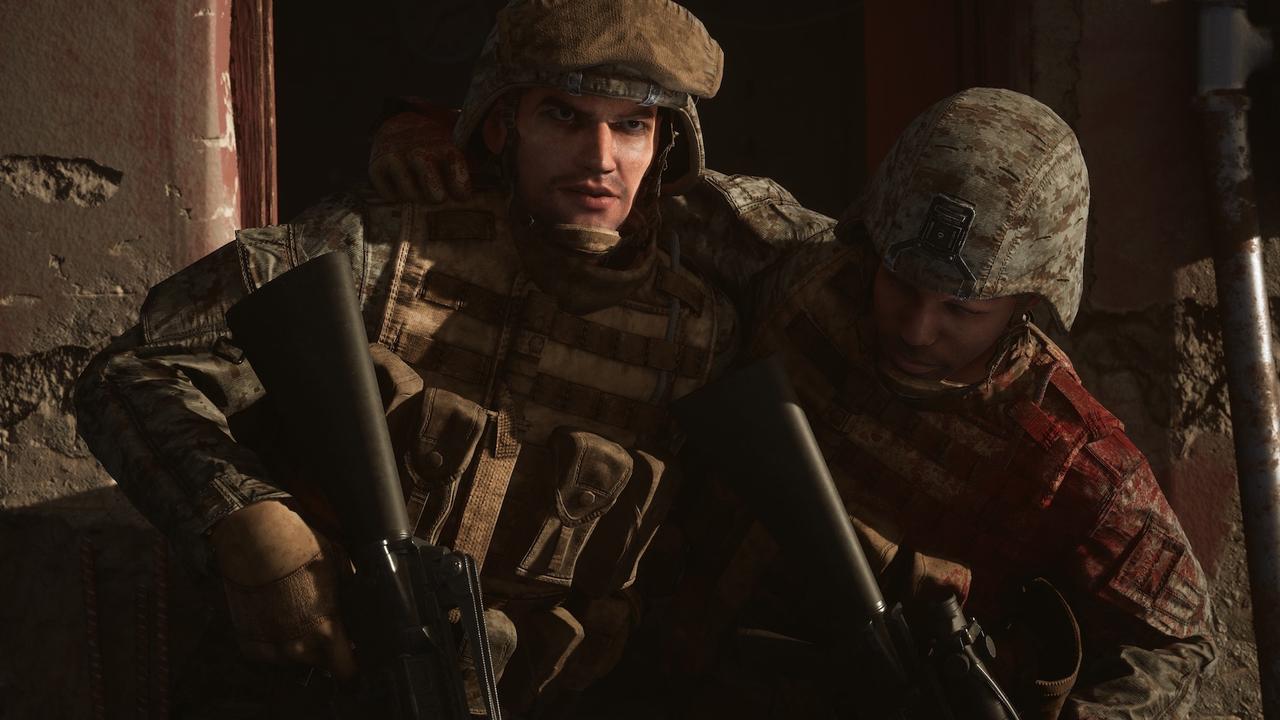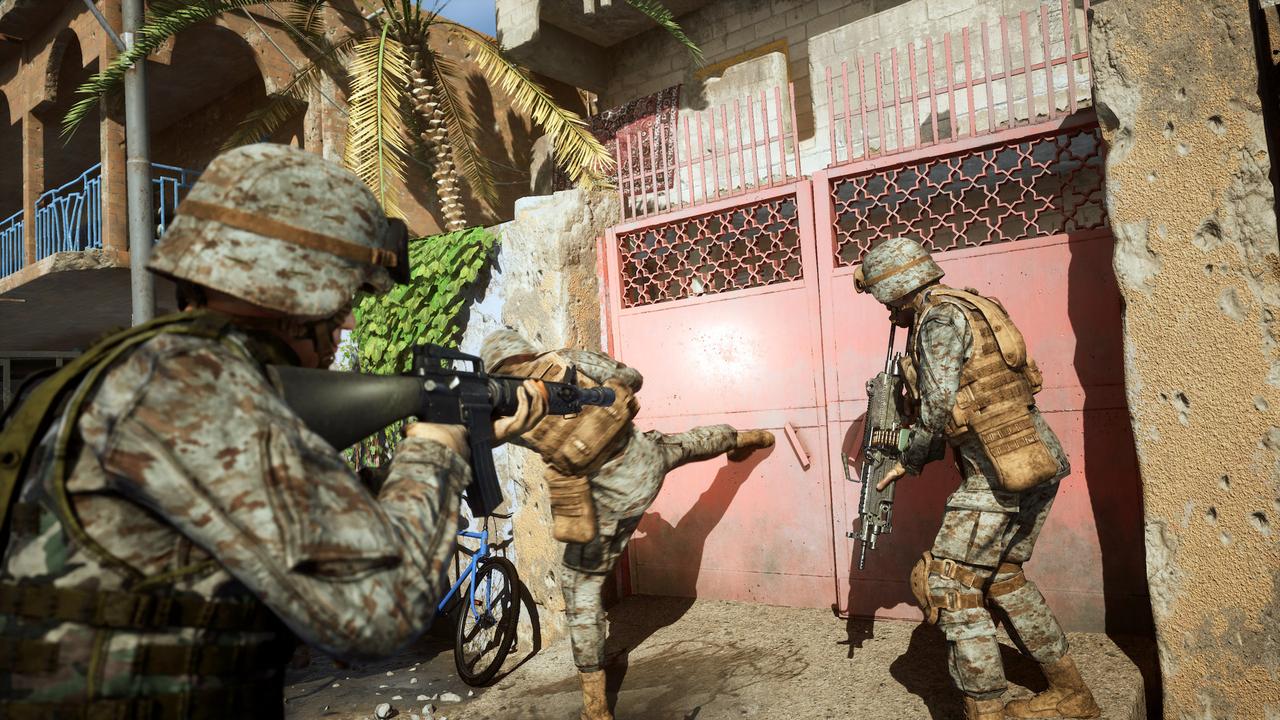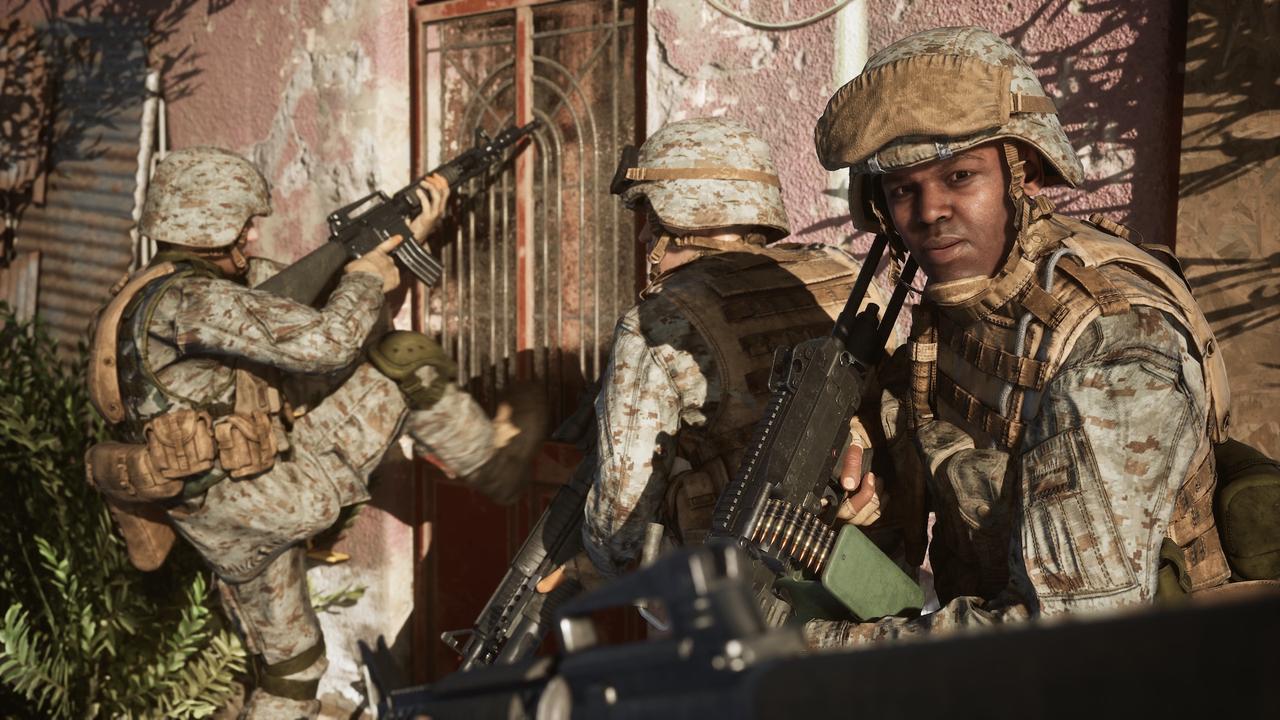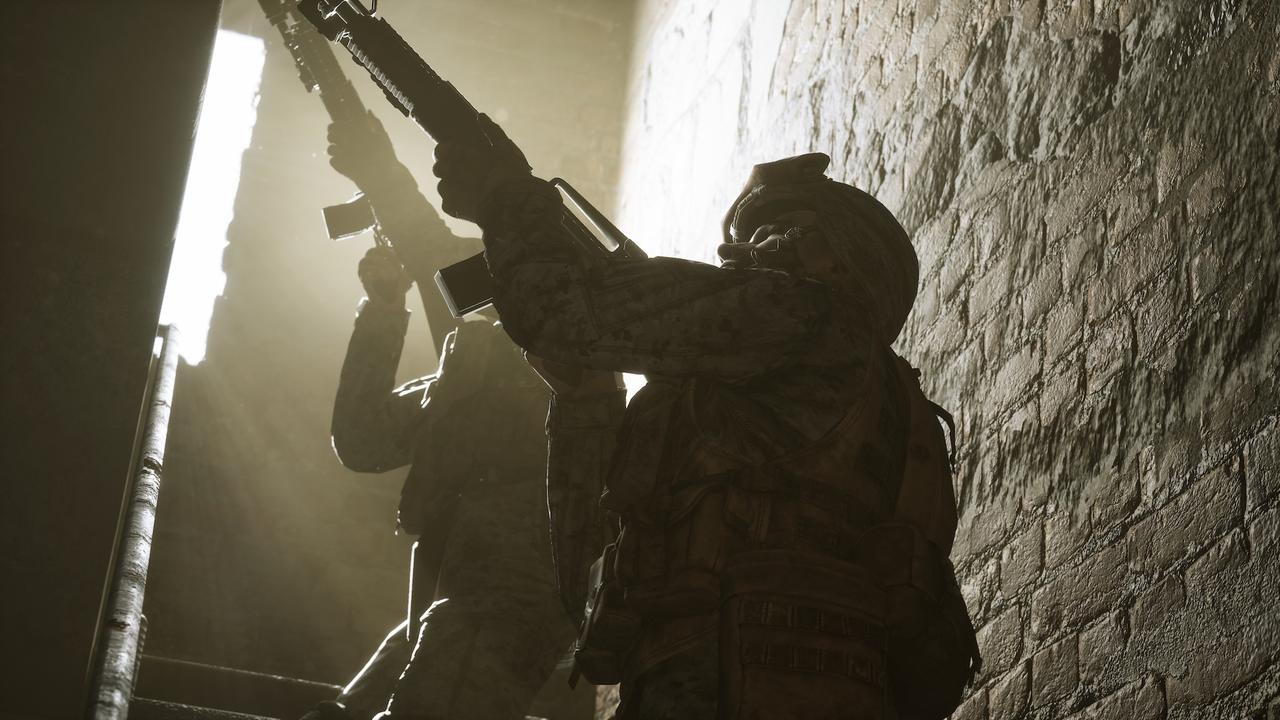Controversial Six Days in Fallujah game revived more than a decade after cancellation
More than a decade after it was first cancelled a controversial game is set for a comeback.
A controversial game that was initially abandoned in 2009 due to its sensitive subject matter is now slated for release this year, but not everyone is excited by the news.
Some have slammed the announcement, saying the game is in “bad taste” and shouldn’t be released.
Six Days in Fallujah was initially set to be published by video-game-cum-pokies-giant Konami but the company walked away in 2009 following backlash.
RELATED: Army accused of using video games to recruit kids

RELATED: Groom spends $11k wedding money on PC
As you can probably guess from the title, the game is set across a six-day period during the 2004 Second Battle of Fallujah, a turning point for the conflict in Iraq as coalition forces battled with insurgents, rather than Saddam Hussein’s deposed Ba-athist government.
The Fallujah conflict is also controversial due to the use of white phosphorous.
At the time Konami walked away, the events the game depicted were still fresh, and the game was set to be the first to focus on the Iraq War, while it was still officially going on.
“After seeing the reaction to the video game in the United States and hearing opinions sent through phone calls and email, we decided several days ago not to sell it,” a Konami spokesperson said in 2009.
The developer, Atomic Games, went bankrupt in 2011.
RELATED: ‘We will not give in’: Hacker’s demand defied

Now, close to a decade on from the official end of the Iraq War, the controversial game has a new home.
Six Days in Fallujah is now slated for released on PC and consoles this year, developed by “many of the core leadership team who created the original Halo and Destiny games”.
It will now be developed by a company called Highwire Games and published by Victura.
Many have reacted negatively to the news, despite assurances from the new developers that the subject matter will be handled with care.
six days in fallujah is a game in such bad taste, so transparently evil on a conceptual level, that even the call of duty loving games journalists who were at that exact moment defending resident evil 5 as not racist were like "man i dunno dude" https://t.co/wdPk2wZyyc
— yuuko from nichijou (@headfallsoff) February 11, 2021
Considering that the upcoming Six Days in Fallujah revival is set to be an authentic depiction of the Iraq War, we can assume you will be able to violate the Geneva Conventions in it. pic.twitter.com/U2vVWnLwln
— Can You Violate The Geneva Conventions? (@ViolateGeneva) February 11, 2021
I couldn't possibly guess why Six Days in Fallujah is being revived at a time when US army recruitment is at an all time low.
— Daniel Ahmad (@ZhugeEX) February 11, 2021
This reboot is from the same people that worked with the FBI and CIA on training systems and is basing its game on excusing US war crimes. pic.twitter.com/5H8vVqKh9s
Now do I think it’s possible to do this the right way? I really do. Do I trust the devs to do it the right way? Absolutely not. I’m already pretty confident about the end result.
— Present Malone (@mistermegative) February 11, 2021
Six Days In Fallujah: pic.twitter.com/0QcMRRge4w
— Liam Robertson (@Doctor_Cupcakes) February 12, 2021
Six Days in Fallujah coming back is interesting because it confirms we're now far out enough from the Iraq/Afghanistan conflicts for the State Department to fund propaganda trying to rewrite history
— the worst thing you've ever seen, only on the CW (@mrfeelswildride) February 11, 2021
As someone who first played the AC-130 Gunship mission of CALL OF DUTY while in Iraq spending 15 months watching people get blown up by gunships on infrared monitors, I'm unsure if I have nothing or everything to say about the SIX DAYS IN FALLUJAH video game revival pic.twitter.com/TlvzQbMvLc
— VyceVictus (@VyceVictus) February 11, 2021
Some others have welcomed the announcement and are remaining hopeful it can meet its lofty goals.
However... there's a chance (and this is my opinion and my hope) that it could give us something we haven't seen before in gaming, specifically, and entertainment more generally.
— James Clark (@JamesWClark) February 12, 2021
I'm not big into war games, but if Six Days in Fallujah is finally released, I will play it, especially knowing that veterans were consulted, and were looking forward to seeing their stories spread in this way.
— Grey Warden Athena (@TheAmbiGamer) February 11, 2021
I don't care what anyone thinks, the fact that Six Days in Fallujah is getting a second chance is great news.
— Jack: Pastor of the Church of Serious Sam (@ChaosBahamut) February 14, 2021
Of all the games I would have expected to come back from the dead, Six Days in Fallujah was not one of them. I was excited for it before and I'm excited again now. I don't think it will be the usual military shooter, but I think it will be an important one.
— Trevor (@TrevdawgBD) February 11, 2021
As a former Marine who served time in afghanistan, I'm very interested in Six Days in Fallujah finally coming out
— Douglas Copeland (@Ebonscale) February 11, 2021
It won't be just another war game. Very few times do veterans get to tell our actual stories and we don't like to sugar coat things. We tell it like it happened
Six days in Fallujah is one of those games that is attempting something that will either drive the medium forward in terms of storytelling, or be a monumental failure.
— The_Cresta_Man (@The_Cresta_Man) February 11, 2021
Gotta respect the gamble though, not a lot of people willing to make that bet.
Announcing the revival last week, Victura said Konami abandoned the game because of “controversy about the ability of video games to cover challenging real-world events”, but it believes “video games can help all of us understand real-world events in ways other media can’t”.
Victura said it has gathered stories, photographs and video recording from “over 100 marines, soldiers and Iraqi civilians” and the plan is to “tell these military and civilian stories with the integrity they deserve”.
“It’s hard to understand what combat is actually like through fake people doing fake things in fake places,” Victura CEO Peter Tamte said.
“This generation showed sacrifice and courage in Iraq as remarkable as any in history. And now they’re offering the rest of us a new way to understand one of the most important events of our century. It’s time to challenge outdated stereotypes about what video games can be.”

Victura has also hit back at claims the game would be used as an Army recruitment tactic, saying the US government is not involved in making the game and there are no plans to use it for recruiting.
Victura added the soldiers and marines who assisted did so as private citizens and that the game is being financed independently.
It also addressed old controversy that the game may re-enact the deaths of real soldiers or have players take on the role of an insurgent.
“We will not recreate the death of a specific servicemember during gameplay without their family’s permission. Instead, Marines and Soldiers describe the sacrifices of their teammates during video interviews.
“You’ll never play as an insurgent during the single-player campaign, or in a multiplayer recreation of an actual event.
“Additionally, the single-player campaign includes some high-intensity stealth missions in which you play as an unarmed Iraqi civilian.”

The company said the game has been developing “unique technologies and game mechanics” for more than three years to “bring players closer to the uncertainty and tactics of modern combat than other video games have explored”.
Other video games have tried, with varying levels of success.
While franchises like Call of Duty and Battlefield bombard gamers with nameless bullet-sponges in their campaigns and present closer to a sport than a depiction of war in their multiplayer, titles like This War of Mine and Spec Ops: The Line have previously sought to highlight the human toll of war, including on those who wage it.



